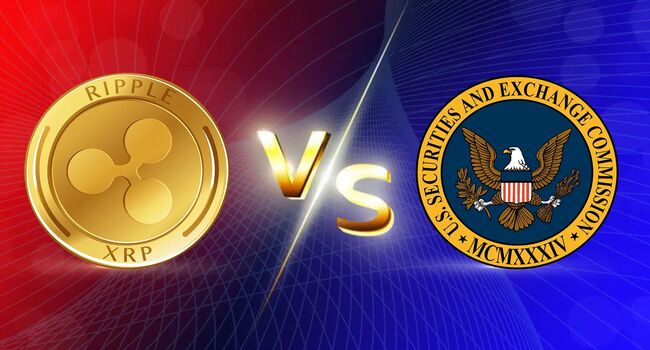Highlights:
- Ripple files Form C, outlining four main legal issues in its appeal against the SEC over XRP institutional sales.
- The appeals court will review existing records without new evidence, as Ripple’s CLO Stuart Alderoty stated.
- Ripple challenges the district court’s ruling that its institutional XRP sales were unregistered securities offerings.
In its cross-appeal against the United States Securities and Exchange Commission (SEC), Ripple has filed a Form C outlining four main issues in the ongoing legal battle over XRP. The blockchain company seeks to overturn the previous verdict that deemed its institutional XRP sales as unregistered securities offerings.
The Form C, which is a Civil Appeal Pre-Argument Statement, is Ripple’s argument for the appeals court to consider. Ripple requests a “de novo” review, which allows the court to re-examine the legal issues independent of the earlier ruling.
Ripple’s cross appeal covers:
1. Essential ingredients issue;
2. Institutional sales;
3. Fair notice defence;
4. The injunction being insufficiently clear and specific. https://t.co/ThkICOYSNI— bill morgan (@Belisarius2020) October 25, 2024
Ripple Challenges Application of Howey Test
One of the key concerns is whether the district court correctly utilized the Howey test when evaluating XRP transactions. Ripple says its XRP sales do not meet the criteria of an investment contract under the Securities Act of 1933. In particular, the corporation argues an investment contract must involve a formal agreement, post-sale obligations, and buyers’ rights to the profits from the seller’s efforts.
Moreover, Ripple disagrees with the court’s conclusion that the XRP transactions constituted a financial investment in a joint venture with the only expected profit from Ripple’s effort. The company points out that XRP purchasers didn’t rely on Ripple’s actions to make profits.
Ripple also doubts the basic requirements for a transaction to be considered an investment contract. The corporation also says the court’s reading was too broad and inconsistent with legal precedence.
Additionally, Ripple is concerned with the SEC’s inconsistent and intentionally ambiguous pronouncements regarding applying federal securities rules to cryptocurrencies. The corporation undercuts the SEC’s stance, saying it got little notice that its actions could be seen as a breach.
Seeking Clarity on Injunction Scope
The scope and clarity of the SEC’s injunction against Ripple are also being questioned. Ripple claims that the injunction lacks specificity and could jeopardize future corporate operations. The company attempts to nullify or modify the injunction to avoid unreasonable constraints.
However, Ripple’s Chief Legal Officer, Stuart Alderoty, expressed confidence in the appeal. He stated that the appeals court would review the existing record and not permit the SEC to submit new evidence. Alderoty said, “We have a great record. The SEC can’t submit new evidence or ask us to produce more.”
Today, Ripple filed a Form C – listing the issues we plan to raise on our cross appeal. A few things to keep in mind as we move forward:
The case is not about whether XRP, in and of itself, is a security. XRP is uniquely situated as having clarity (alongside BTC) in not being… https://t.co/AmFocAnbPx
— Stuart Alderoty (@s_alderoty) October 25, 2024
Alderoty stated that the SEC will not challenge the fundamental decision that XRP is not a security. He advised the community to stay focused, implying that SEC intends to cause diversion and uncertainty.
SEC Position and Previous Filings
The SEC has also submitted a pre-argument statement, urging that the court reconsider whether the district court erred in deciding in favor of Ripple regarding XRP offers and sales on trading platforms. The agency believes that these sales should be considered securities transactions.
The legal dispute between Ripple and the SEC began in 2020 when the SEC accused Ripple of raising $1.3 billion through unregistered securities offerings using XRP sales. In a partial success for both sides, U.S. District Judge Analisa Torres decided that, while Ripple’s programmatic XRP sales did not violate securities laws, direct sales to institutional investors did.
The appeals court will issue a scheduling order for briefings when both parties submit their Form C papers. The court will consolidate pertinent papers and review the matter using the current record. Ripple’s cross-appeal seeks “nothing is left on the table,” overturning the verdict on institutional sales and narrowing the scope of the injunction.





